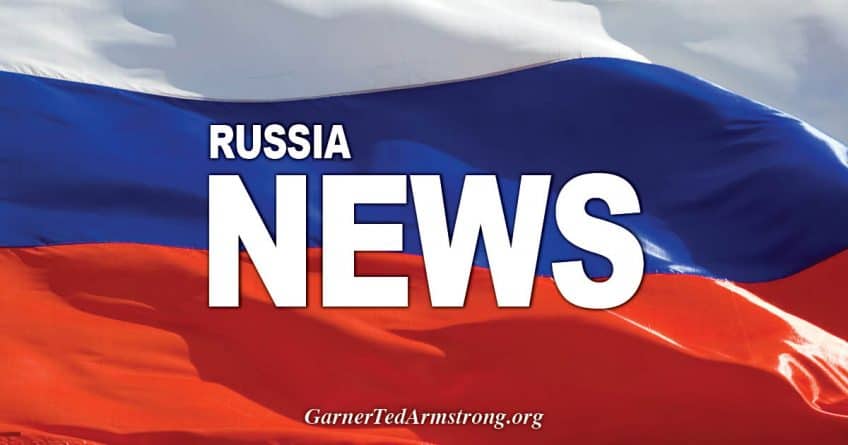Mary Louise Kelly talks with reporter Charles Maynes in Moscow about ongoing tensions between the U.S. and Russia as the countries close diplomatic posts.
MARY LOUISE KELLY, HOST:
Just how bad are relations between the U.S. and Russia right now? Well, over the weekend, the U.S. took control of Russia’s consulate in San Francisco. That follows a move by Moscow ordering the U.S. to slash its diplomatic staff in Russia by hundreds, which followed the U.S. throwing 35 Russian diplomats out of the country last year, which followed Russian meddling in the 2016 presidential election. You get the picture. On the line now from Moscow is reporter Charles Maynes. Hey, Charles.
CHARLES MAYNES: Hi, Mary Louise. Good to be with you.
KELLY: And with you. So start with this question. Does the diplomatic tit for tat end here, or might Russia retaliate against this latest U.S. retaliation?
MAYNES: Well, you know, Russia hasn’t made clear exactly what their response will be at this point. They say they don’t want to give in to emotions. But, clearly, their anger is apparent here. They’ve been calling this state hooliganism. They’ve called it an act of hostility. I think beyond the anger over the compound seizure, the row seems now to be focused on what happens to these facilities now that they’ve been handed over to American officials. Russia has been accusing the U.S. of essentially letting the FBI sweep the premises, suggesting that they could be planting cameras or microphones or compromising materials. The State Department today said that’s not the case. It’s really a question, I think, of whether the Russians will take them at their word, the early signs being no.
KELLY: And we were quite literally watching smoke signals here in the U.S. these last few days, as smoke came out of the chimney in the Russian consulate in San Francisco. We don’t know quite what was happening there. We do know that, meanwhile, we’ve got two new ambassadors at the helm, a new American ambassador in Moscow and Russia’s new ambassador, who has just arrived here in Washington. This is Anatoly Antonov. What do we know about him?
MAYNES: Well, you know, Antonov is 62 years old. He’s considered a hardliner, a specialist in arms control. You know, essentially, he’s a tough guy for a tough assignment. He’s a former deputy defense minister. But that, you know said, he gave an interview to state television here before he departed for Washington where he really said kind of all the right things. He was very diplomatic, said he was very eager to engage the American press. He wants to end the sanctions spiral, says he prefers diplomacy to conflict. You know, and keep in mind that his predecessor, Sergey Kislyak, became, you know, if not a household name but close to it because of the Russia-gate scandals.
KELLY: Certainly, a man about town here in Washington, meeting with just about everybody, it seemed.
MAYNES: Exactly. But towards the end of his tenure there, he really was sort of toxic. He couldn’t meet anybody in the sort of American establishment – political establishment – without being outed by the press. And now Antonov says he wants to kind of change that. He wants to travel the country, engage Americans. He also says he’s a big fan of jazz and country music. So, hopefully, he’ll get to a club or two.
KELLY: (Laughter) OK. So he’s got that going for him here in Washington. We do – against this backdrop, I just want to mention Russian President Putin has been in China. He met with President Xi last night. They talked North Korea. They apparently talked about how to deal with North Korea. Do we know what they may have agreed?
MAYNES: Well, the two met last time in July in Moscow. And they’ve been pushing a de-escalation deal for the Korean Peninsula, the idea here being that the North Koreans would suspend their ballistic missile program, and the U.S. and South Korea would put a moratorium on military drills. Now, obviously, none of that’s happened. Both sides have continued to push forward. But that’s Russia’s main message here – is kind of dialogue.
Putin was in China. He said that threats are a road to nowhere. And it’s important to note that Russia is also coming out against further sanctions against North Korea. Today, the deputy foreign minister said that they’d reached the limit of their impact and would just essentially break the North Korean economy. So, you know, it looks as though the Russians are essentially pushing for dialogue.
KELLY: All right. That’s reporter Charles Maynes reporting us on all the diplomatic developments to do with Russia, talking to us from Moscow. Thanks a lot.
MAYNES: Thank you.
Source: http://www.npr.org/2017/09/04/548415509/whats-next-in-the-diplomatic-spat-between-the-u-s-and-russia
[Disclaimer]







